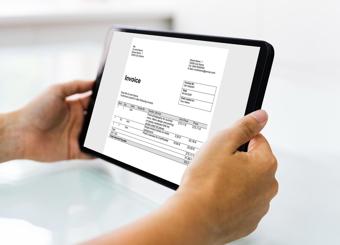Best practices for travel and hospitality procurement
The way consumers purchase, interact, and socialize has radically changed post-pandemic. As a result, the travel and hospitality industry was forced into a fast evolution to accommodate a new normal and observe how people could come together again. As a result, hospitality procurement also changed, requiring real-time financial data results and quick thinking to boost the bottom line.
Finding the best vendors and negotiating the most viable contract and payment terms became crucial to remain competitive in the unpredictable days ahead. As people cautiously emerge to dine out, travel, and socialize, robust PO systems provide the essential financial data in real-time to support cutting-edge decisions.
What is hospitality procurement?
Hospitality procurement is a subset of the broader purchasing and procurement activities that focus on buying services and goods for the restaurant, resort, and hotel industry. The four primary aspects of hospitality procurement include sourcing, contract negotiation, payment terms, and end-of-life management. Keep in mind, both quality and pricing are crucial when purchasing items such as chairs, which are used by hundreds of people. Another factor to consider in hospitality procurement is the high turnover rate for things such as appliances and fixtures.
In addition, hospitality procurement focuses on unique branding and local vs. chain purchasing to meet various requirements. Often payment terms are longer and more generous due to expected cash flow issues associated with the hospitality industry. In addition, end-of-life management tracks fixtures and furniture that could require replacement. The specifics of hospitality procurement impact overall production, costs, and the bottom line. In a constantly changing industry, automation helps the C-suite make crucial decisions in real-time.
What is the role of procurement in the hospitality industry?
Procurement plays a crucial role in the hospitality industry by keeping costs down while maintaining branding and productivity to ensure profitability today and in the future. Automation offers advantages that enable provide the procurement team with:
- More time for other business-building activities that are crucial post-pandemic, such as branding
- Access to customized information in real-time to avoid blind spots caused by a lack of purchasing data in an evolving marketplace
- Eliminate constant negotiations through the use of intelligent technology, purchasing volume, and obtaining the best possible price throughout market changes
- Find ways to purchase in volume to get better pricing and reduce production costs
- Maintain a higher level of order accuracy and fulfillment for reputation building
- Support communication and collaboration in real-time from any location, supporting team members who continue to work remotely
- Get rid of risks associated with not procurement properly, such as food quality in the hospitality and restaurant industry
Learn about procurement benchmarks
Procurement benchmarks help set standards for performance and compliance using metrics such as key performance indicators (KPIs) to determine how well procurement processes meet those standards. Exceeding those standards enables procurement teams to provide meaningful support that improves profitability. As a result, it is crucial to transform data into real-time reports to help develop more effective sourcing strategies and realize a measurable ROI for adopting intelligent PO systems.
Keep in mind procurement benchmarks, such as average PO processing costs and the AP touchless processing ratio. Using procurement benchmarks is critical in the constantly changing travel and hospital climate in a new normal. Analyzing real-time data and metrics support crucial procurement and production evolutions to remain relevant throughout all the industry changes.
Best practices in procurement for travel and hospitality
To ensure best practices for travel and hospitality, automation tracks common concerns associated with the industry, such as:
- Minimizing transaction fees
- Enforcing travel policy compliance, especially with new protocols post-pandemic
- Make quick decisions about supplier bids and maximize competition for the best possible pricing
- Reduce contract risk and realize measurable savings
Travel and hospitality differ from other industries because of constants such as complex pricing, fixed costs for a perishable service, and other variables that make it challenging to determine a buyer’s selection. Automation makes a difference by offering real-time reporting and collaboration to empower the team to make meaningful decisions based on current consumer behavior.
Procurement and the worldwide market
The procurement department has become more influential than ever before, both in-house and in developing the state of the worldwide marketplace in a new normal. Medius’ Contract Case Study of Mitchells and Butlers proves the power of procurement and automation. They established efficiency, control, and reduced risk across the supply base with a superior level of management and auditing processes. In addition, through the use of intuitive software, M&B can:
- Gain total visibility of spend and enhanced protocol
- Increase spend under contract
- Reduce supply-chain risk
- Reduce supplier onboarding process from four weeks to a few hours
- Improve process efficiency and time-savings
Thus, PO systems help procurement make relevant decisions faster by eliminating tedious and time-consuming manual processes. As a result, the best practices for travel and hospitality procurement start with intelligent cloud automation.
The only constant in travel and hospitality procurement is change. Cloud automation helps procurement make relevant decisions as they happen, making a difference within the organization and at large.






